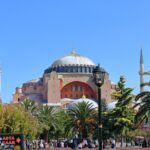PESTEL analysis of Singapore
This detailed PESTEL analysis of Singapore aims to explore some of the political, economic, social, technological, environmental, and legal factors that affect Singapore today. Singapore is a sovereign city state with a highly developed economy. It is officially known as the Republic of Singapore.
Political factors affecting Singapore
Singapore is a parliamentary democracy whereby the President is the head of state and the Prime Minister is the head of government. It is one of the most stable countries in south-east Asia. It is a member of the IMF, the World Bank, ASEAN, APEC, the UN, the Commonwealth, and some other prestigious institutions.
Singapore maintains very good relations with China, the USA, and some other highly developed and powerful countries in the world. Interestingly, it also maintains good relations with North Korea. However, its relations with neighbouring countries such as Malaysia and Indonesia have been cumbersome at times particularly due to disputes over border issues.
Singapore has done well in its fight against corruption. It ranked the fifth least corrupt country in the world in the Transparency International Corruption Perceptions Index in 2022 (Transparency International, 2023).
Singapore’s political system has been praised for its stability and efficiency, with the government often implementing long-term policies that have contributed to the country’s rapid development and economic success. However, critics argue that the lack of political diversity and strict laws governing freedom of expression have stifled the growth of a more pluralistic political landscape.
The Singaporeans face severe restrictions on their basic rights to freedom of expression, association, and peaceful assembly (Human Rights Watch, 2023). In this connection, it is worth noting that the government of Singapore has rejected the criticisms of Human Rights Watch.
Economic factors affecting Singapore
The next element to address in the PESTEL analysis of Singapore is the economic environment. Singapore is one of the four Asian Tigers or Asian Dragons that are so named as they are highly developed economies with highly educated and productive work forces. The four Asian Tigers are Hong Kong, Singapore, South Korea, and Taiwan.
Singapore has seen remarkable growth in recent years. Its GDP is forecast to trend around $440.00 Billion in 2024 and $490.00 Billion in 2025 (Trading Economics, 2023). The economy grew faster than the official forecasts in 2022.
Corporate tax is charged at a flat rate of 17% (PwC, 2023). Individual tax rate ranges from 0% to 24%. Many analysts see Singapore as a tax heaven as it offers low taxes and other incentives to foreign investors.
Singapore is one of the largest recipients of foreign direct investment (FDI) in the world. In fact, the focus of the government on attracting foreign direct investment has been an important key to the economic success of the country.
Singapore is one of the largest export economies in the world. Its top exports are integrated circuits, computers, semiconductor devices, gas turbines, refined petroleum, gold, diamonds, refined copper, broadcasting equipment, and raw tin which mostly go to countries such as China, Hong Kong, Malaysia, Indonesia, and the USA.
Singapore’s top imports are integrated circuits, refined petroleum, crude petroleum, gold, and computers. It is worth mentioning that as Singapore is a small island nation, it lacks natural resources. In fact, it imports more than 90% of its food from more than 170 countries and regions (Ong, 2022).
Singapore’s economic success can be attributed to its open and trade-oriented economy, as well as its strategic location along major trade routes. It is home to one of the busiest ports in the world, and its airport, Changi Airport, is a major international aviation hub. It has also established itself as a leading financial centre, with a well-regulated and sophisticated financial services sector.
Singapore’s economy is highly diversified, with key industries including electronics, chemicals, financial services, and biomedical sciences. Tourism is another important pillar of the economy, with millions of visitors flocking to the city-state each year to experience its unique blend of culture, history, and modernity.
Social factors affecting Singapore
Singapore is one of the wealthiest nations in the world. It is a multi-ethnic country with a total population of almost 5.9 million (Worldometer, 2023). The life expectancy for men is 79 years, while 84 years for women.
Singapore is a melting pot of cultures, with a diverse population comprising various ethnic groups, including Chinese, Malays, Indians, and Eurasians. This rich tapestry of cultures is reflected in its official languages – English, Malay, Mandarin, and Tamil – as well as in its customs, traditions, and festivals.
While the Singaporeans are somewhat conservative due to the influences of dominant faiths such as Taoism, Buddhism, Islam, Christianity, and Hinduism, they are well aware of the world around them. The government promotes religious harmony and tolerance, with places of worship for different faiths often found in close proximity to one another.
Singapore has a world-class education system, with a strong emphasis on bilingualism, mathematics, and science. Higher education is provided by a range of institutions, including universities, polytechnics, and Institutes of Technical Education (ITEs).
Healthcare in Singapore is a mix of public and private providers, with the government playing a significant role in financing and regulating the sector. The country’s healthcare system is highly regarded for its efficiency and quality, with citizens enjoying one of the highest life expectancies in the world.
Though Singapore has made remarkable progress over the years, it faces some social challenges. For instance, it is a densely populated country and has severe space constraints. The ageing population, rising costs of living, high divorce rates, occasional tensions between ethnic groups, and income inequality are some other social challenges to pay special attention to.
Technological factors affecting Singapore
The next element to address in the PESTEL analysis of Singapore is the technological environment. Singapore is one of the world’s most technologically advanced countries. It is also considered the most innovative country in Asia. Its IT infrastructure is one of the best and it has the fastest internet in the world.
Singapore is also often regarded as the Asian technology capital. No wonder why global tech giants such as Amazon, IBM, and many others use Singapore to pilot ground-breaking new projects before their commercialisation around the world. Likewise, 80 of the top 100 tech firms in the world have a presence in Singapore (EDB Singapore, 2023).
Hiring in IT sector has recently outpaced many other dominant sectors in the economy of Singapore. However, there is a severe lack of STEM (science, technology, engineering, and mathematics) talents in the country. According to some surveys, many employers find difficulties in recruiting IT and engineering staff.
Environmental factors affecting Singapore
Singapore is one of the most beautiful places in the world. It is renowned for its world’s cleanest streets, year-round summer, Changi Airport (awesome!), street food, sandy beaches, resort hotels, adventure parks, and many other great visitor attractions.
However, it is worth mentioning that as Singapore is a low-lying island state, it is very vulnerable to sea level rise and coastal erosion. Likewise, industrial pollution, and limited resources for freshwater are two big environmental challenges facing the country.
Legal factors affecting Singapore
The legal environment is the last element to discuss in this PESTEL analysis of Singapore. However, it is worth noting that due to the limited scope of the article, the discussion here is somewhat limited.
Singapore has some strict laws in areas such as leaving a ‘unflushed’ toilet, connecting to someone else’s Wi-Fi network, urinating in elevators, littering, and vandalizing. As long as employment rights are concerned, employees have the right to a minimum of 7 to 14 days paid annual leave, sick leave, timely salary, and paid public holidays. They are also protected by law against wrongful dismissal.
The government places a strong emphasis on maintaining law and order, with severe penalties for certain crimes. This has resulted in a remarkably low crime rate, making Singapore one of the safest countries in the world.
Summary of PESTEL analysis of Singapore
Singapore is known for its impressive cityscape, high quality of life, and stable political environment. Its strategic location at the crossroads of major international trade routes has allowed it to become one of the world’s most prosperous countries, boasting the highest per capita income in Asia.
We hope you like the article ‘PESTEL analysis of Singapore. Please share the article link on social media to support our work. You may also like reading PESTEL analysis of the Netherlands and PESTEL analysis of China.
Other relevant articles for you are:
SWOT analysis of Singapore Airlines
Last update: 07 April 2023
References:
EDB Singapore (2023) Singapore flexes its standing as Asia’s technology capital, available at: https://www.edb.gov.sg/en/news-and-events/insights/innovation/singapore-flexes-its-standing-as-asias-technology-capital.html (accessed 07 April 2023)
Human Rights Watch (2023) Singapore, available at: https://www.hrw.org/asia/singapore (accessed 06 April 2023)
Ong, C. (2023) Singapore imports more than 90% of its food, available at: https://www.cnbc.com/2022/06/21/singapore-imports-90percent-of-its-food-how-is-it-coping-with-inflation.html (accessed 07 April 2023)
PwC (2023) Singapore, available at: https://taxsummaries.pwc.com/singapore/corporate/taxes-on-corporate-income (accessed 07 April 2023)
Trading Economics (2023) Singapore GDP, available at: https://tradingeconomics.com/singapore/gdp (accessed 06 April 2023)
Transparency International (2023) Corruption perceptions index, available at: https://www.transparency.org/en/cpi/2022/index/sgp (accessed 06 April 2023)
Worldometer (2023) Singapore population, available at: https://www.worldometers.info/world-population/singapore-population/ (accessed 06 April 2023)
Author: M Rahman
M Rahman writes extensively online and offline with an emphasis on business management, marketing, and tourism. He is a lecturer in Management and Marketing. He holds an MSc in Tourism & Hospitality from the University of Sunderland. Also, graduated from Leeds Metropolitan University with a BA in Business & Management Studies and completed a DTLLS (Diploma in Teaching in the Life-Long Learning Sector) from London South Bank University.



